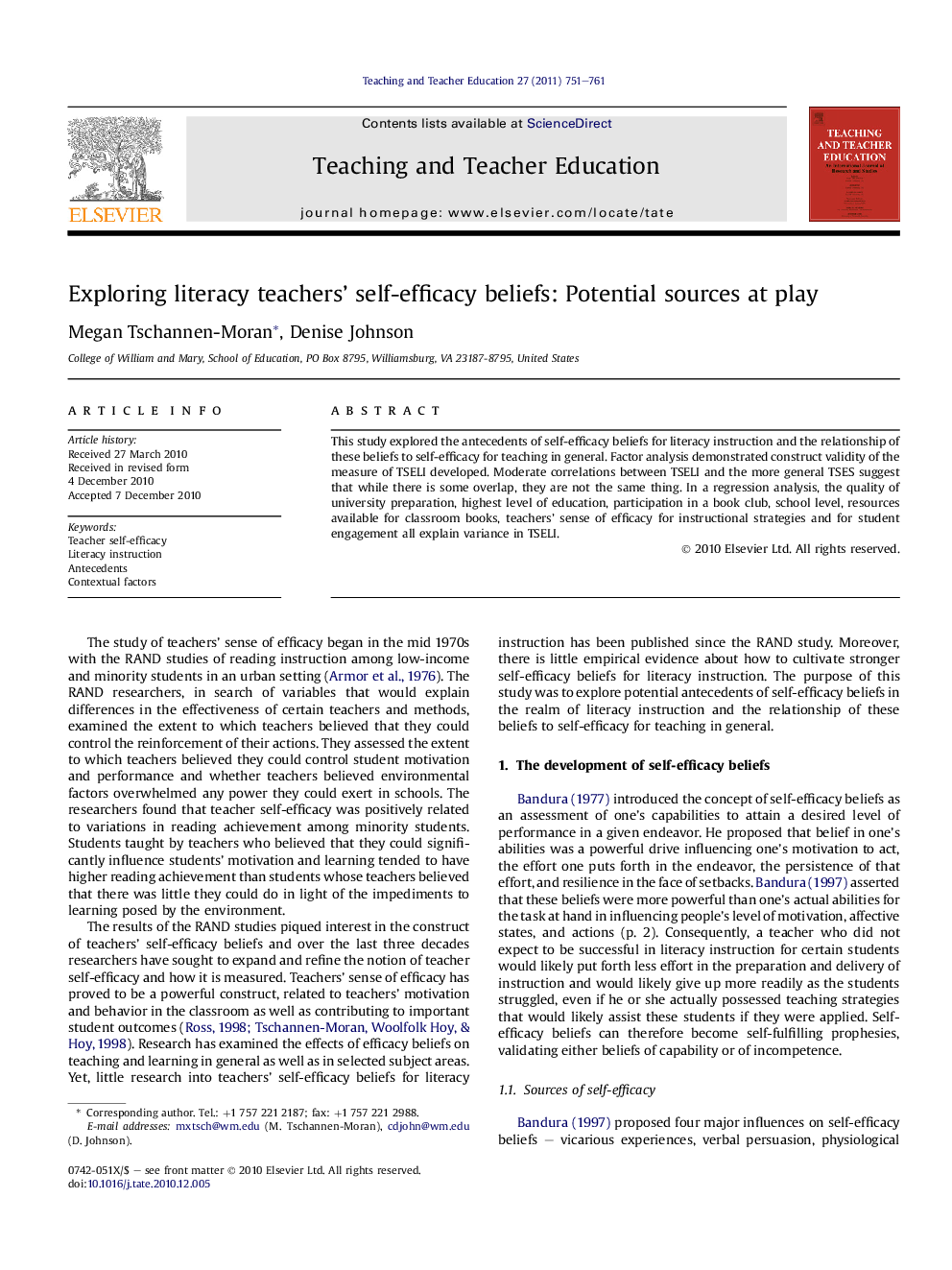| Article ID | Journal | Published Year | Pages | File Type |
|---|---|---|---|---|
| 374262 | Teaching and Teacher Education | 2011 | 11 Pages |
This study explored the antecedents of self-efficacy beliefs for literacy instruction and the relationship of these beliefs to self-efficacy for teaching in general. Factor analysis demonstrated construct validity of the measure of TSELI developed. Moderate correlations between TSELI and the more general TSES suggest that while there is some overlap, they are not the same thing. In a regression analysis, the quality of university preparation, highest level of education, participation in a book club, school level, resources available for classroom books, teachers’ sense of efficacy for instructional strategies and for student engagement all explain variance in TSELI.
Research highlights► This manuscript presents a new measure of teachers’ self-efficacy beliefs for literacy instruction (TSELI) that was tested with factor analysis and reliability analysis. ► Moderate correlations between TSELI and the more general TSES suggest that while related, they are distinct constructs. ► Correlates of TSELI include the quality of university preparation, the quality of university professional development, and resource support. ► Years of teaching experience and race were unrelated to TSELI. ► In a regression analysis, the quality of university preparation, highest level of education, participation in a book club, school level, resources available for classroom books, teachers’ sense of efficacy for instructional strategies and for student engagement all explain variance in TSELI.
